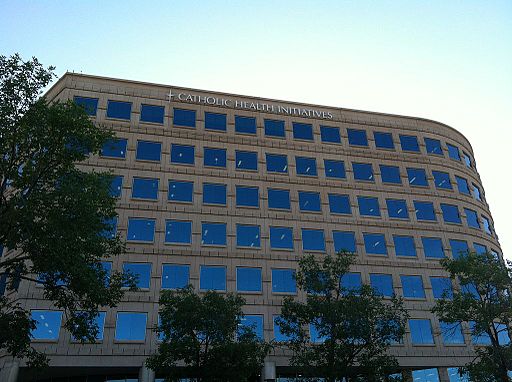
May 24, 2017; Courier-Journal (Louisville, KY)
NPQ has followed the twists and turns of the healthcare industry for many years, including the nonprofit hospital shutdowns, mergers, and acquisitions that have been a feature of the Affordable Care Act (ACA, or Obamacare). As healthcare revenue margins shrink, nonprofit hospitals and clinics find that growth and delivering integrated services are a desirable or even necessary way forward. But what happens when larger nonprofit health systems find continued service unsustainable?
Denver-based Catholic Health Initiatives (CHI) has announced its intention to divest itself of most of the facilities in Louisville, Kentucky, operated by its nonprofit subsidiary, KentuckyOne. The Courier-Journal reports that “the health system will retain Our Lady of Peace Hospital on Newburg Road and Flaget Memorial Hospital in Bardstown, as well as six hospitals and other doctor and provider practices in Central and Eastern Kentucky.” Ruth Brinkley, CEO of KentuckyOne since its formation in 2012, will exit her role in July.
The sale of Jewish Hospital, Frazier Rehab Institute, Sts. Mary & Elizabeth, four outpatient medical centers in Louisville, Jewish Hospital Shelbyville, St. Joseph Martin, and doctors’ practices in Louisville and Martin, Kentucky, is anticipated to return nearly $535 million to CHI. However, “losing a joint operating agreement with the University of Louisville to run the downtown medical center and James Brown Cancer Center result in a loss on its balance sheet of $279.4 million.”
Sign up for our free newsletters
Subscribe to NPQ's newsletters to have our top stories delivered directly to your inbox.
By signing up, you agree to our privacy policy and terms of use, and to receive messages from NPQ and our partners.
Who will buy the facilities KentuckyOne is selling? No one seems to have an answer, though many believe finding a local buyer is preferable to having a national or regional system purchase the community’s troubled healthcare assets. However, the most likely local buyers, including Community Health Systems in Franklin, Tennessee, are hesitant to purchase additional facilities—especially those with financial problems—because the current healthcare marketplace is so unpredictable. Some have mentioned having the Veterans Administration take over Jewish Hospital. The problem is that the VA is currently committed to building a new $1 billion facility elsewhere in the city.
Healthcare market uncertainties like reduced reimbursements and the future of Obamacare are shared throughout the country. In addition, many states share concerns over the potential rollback of Medicaid expansion in Kentucky and how that will affect healthcare revenues and margins.
A sale or transfer of the nonprofit healthcare facilities to an entity outside Kentucky would likely need to be approved by the state’s attorney general to assure that public nonprofit assets continue to benefit the state’s residents. There are also important questions about how services will be affected by KentuckyOne and CHI’s divesture decision, and the economic impact to the community when an employer of 12,000 people, many in high-paying and specialized roles, restructures itself wholesale.
CHI and KentuckyOne are doing what they need to do to sustain their operations and fulfill their charitable mission in a challenging marketplace. Resolving their operational difficulties in Louisville, however, leaves a challenge for the community in assuring that healthcare access will continue and that one or more of the divested facilities won’t have to close for lack of a willing buyer.—Michael Wyland













